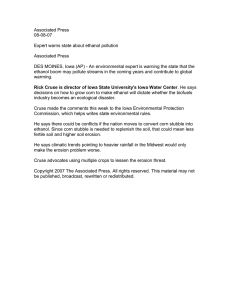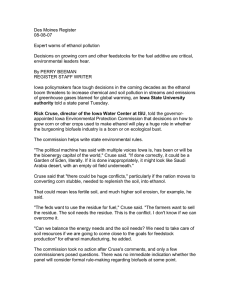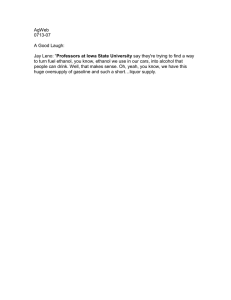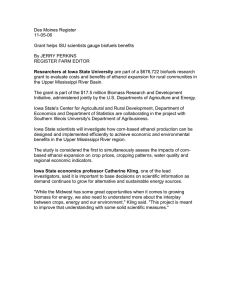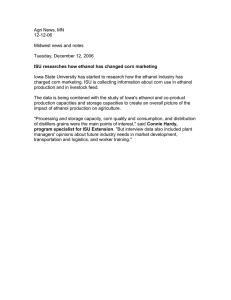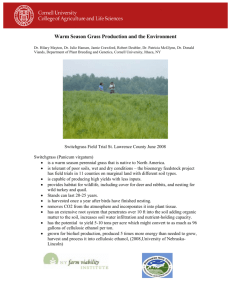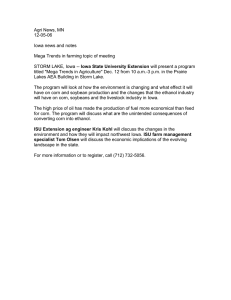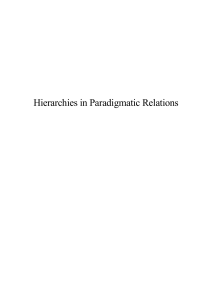High Plains/Midwest Ag Journal 08-20-07 Expert warns state about ethanol pollution
advertisement
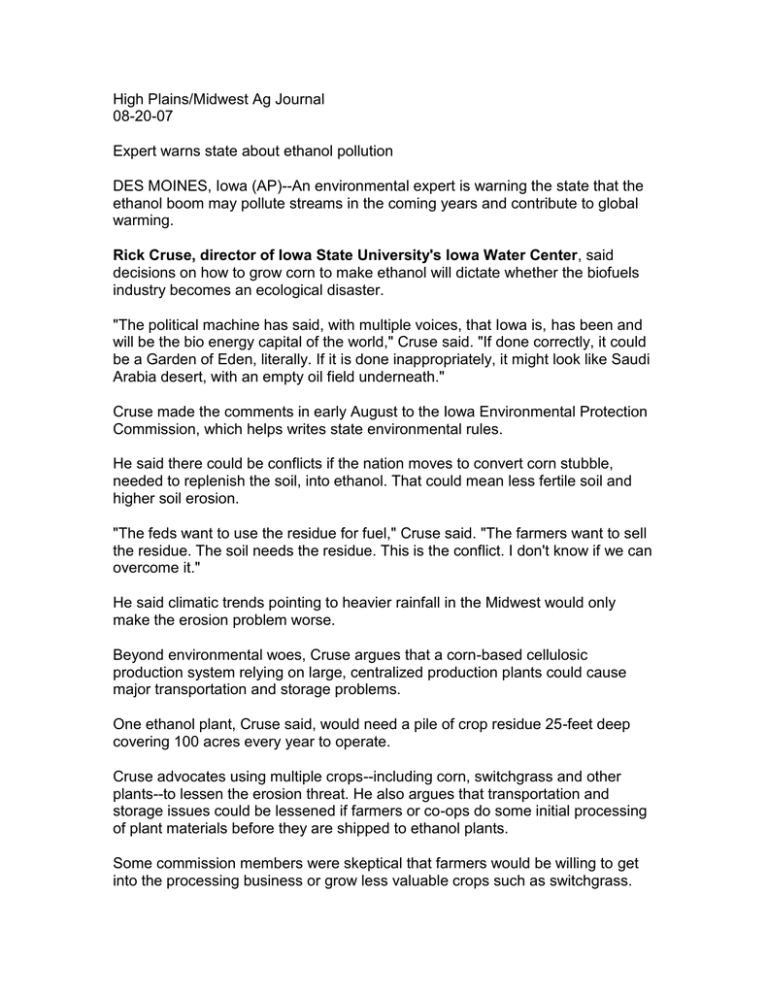
High Plains/Midwest Ag Journal 08-20-07 Expert warns state about ethanol pollution DES MOINES, Iowa (AP)--An environmental expert is warning the state that the ethanol boom may pollute streams in the coming years and contribute to global warming. Rick Cruse, director of Iowa State University's Iowa Water Center, said decisions on how to grow corn to make ethanol will dictate whether the biofuels industry becomes an ecological disaster. "The political machine has said, with multiple voices, that Iowa is, has been and will be the bio energy capital of the world," Cruse said. "If done correctly, it could be a Garden of Eden, literally. If it is done inappropriately, it might look like Saudi Arabia desert, with an empty oil field underneath." Cruse made the comments in early August to the Iowa Environmental Protection Commission, which helps writes state environmental rules. He said there could be conflicts if the nation moves to convert corn stubble, needed to replenish the soil, into ethanol. That could mean less fertile soil and higher soil erosion. "The feds want to use the residue for fuel," Cruse said. "The farmers want to sell the residue. The soil needs the residue. This is the conflict. I don't know if we can overcome it." He said climatic trends pointing to heavier rainfall in the Midwest would only make the erosion problem worse. Beyond environmental woes, Cruse argues that a corn-based cellulosic production system relying on large, centralized production plants could cause major transportation and storage problems. One ethanol plant, Cruse said, would need a pile of crop residue 25-feet deep covering 100 acres every year to operate. Cruse advocates using multiple crops--including corn, switchgrass and other plants--to lessen the erosion threat. He also argues that transportation and storage issues could be lessened if farmers or co-ops do some initial processing of plant materials before they are shipped to ethanol plants. Some commission members were skeptical that farmers would be willing to get into the processing business or grow less valuable crops such as switchgrass. "It could be done, but is that really what a farmer wants to do? Run a cellulosic ethanol plant?" said Mary Gail Scott of Cedar Rapids, the commission's vice chair. Monte Shaw, executive director of the Iowa Renewable Fuels Association, said he doubts that Cruse's worst-case scenario will happen in Iowa. He contends that grain will continue to be the main source of ethanol and that cellulosic sources will take a secondary role. He insists that farmers can leave enough crop residue on fields to guard against erosion. "We have great farmland here. We still need to feed the world," Shaw said. "Can we also fuel the world? The answer is yes. But that's going to take some corn." 8/20/07
